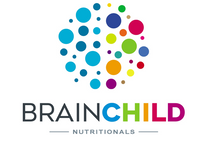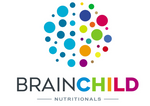The Two Key Nutrients That Boost Brain Health

The Findings
Many clinical disorders, such as autism spectrum disorder (ASD), attention
A new study published in the FASEB Journal discusses how low vitamin D and marine omega-3 deficiencies interacts with the serotonin pathway. This is important for brain development and social cognition, and could influence neuro-psychiatric outcomes (Patrick & Ames 2015).

The Role Of Serotonin
In the brain, serotonin acts as a neurotransmitter affecting the wiring and

The Role of Vitamin D
Vitamin D, which is a steroid hormone that controls about 1,000 genes, many in the brain, activates a gene which produces an enzyme leading to higher levels of serotonin.
Unfortunately Vitamin D deficiency is very common, research suggests around 41.6% of adults in the Unites States are deficient. When untreated over a long period of time, it can affect bone health, brain function and more.
While your body makes vitamin d from sun exposure, and it can be found in certain foods, the best way to ensure you and your family are getting enough is to use dietary supplements.

The Role of Omega-3s
Omega-3 fatty acids is another important micro-nutrient linked to serotonin production and function. Eicosapentaenoic acid (EPA) increases serotonin release from pre-synaptic neurons by reducing inflammatory signaling molecules in the brain known as E2 series prostaglandins. These inhibit serotonin release and suggests how inflammation may negatively impact serotonin in the brain.
EPA, however, is not the only omega-3 that plays a role in the serotonin pathway. Docosahexaenoic acid (DHA) also influences the action of various serotonin receptors by making them more accessible to serotonin by increasing cell membrane fluidity in postsynaptic neurons.
Research has also shown that a gene affected by vitamin D tends to decrease serotonin production in the gut and other tissues. High levels of serotonin in the gut, where 90% of serotonin is usually found, can cause intestinal problems which are often associated with autism.
Recommended Vitamins for Brain Health
The publications suggests that optimizing intakes of vitamin D, EPA and DHA would optimize brain serotonin concentrations and functions and possibly relieve some of the symptoms associated with these disorders without side effects.
In a nutshell: Omega-3 Fatty acids and vitamin D may control brain serotonin levels affecting behavior and brain health.
We recommend: Nordic Naturals Omega 3

Nordic Naturals ProOmega is a great omega 3 for kids. It contains 70% pure Omega-3, and are purified through molecular distillation to ensure the absence of impurities including PCBs and heavy metals. ProOmega Junior is a smaller size
THE BEST VITAMIN D SUPPLEMENT: Micellized Liquid Vitamin D
This is a convenient, neutral-tasting
Check it out here.





